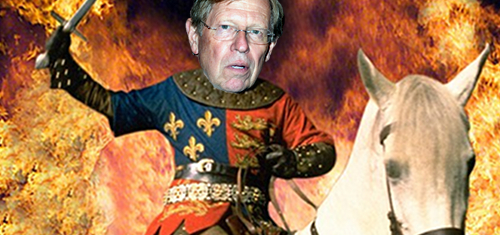 America’s best hope for legal sports betting took its best shot in a federal courtroom on Wednesday, but it’s anybody’s guess what the outcome will be.
America’s best hope for legal sports betting took its best shot in a federal courtroom on Wednesday, but it’s anybody’s guess what the outcome will be.
On Wednesday, New Jersey’s efforts to offer legal sports betting to state residents had its latest day in court. The US Third Circuit Court of Appeals heard testimony from the state’s legal reps, as well as those opposed to the plan, including the federal government, four major pro sports leagues and the NCAA.
To recap very briefly, New Jersey is attempting to overthrow the 1992 federal PASPA sports betting prohibition, which limits single-game wagering to Nevada, while allowing sports lotteries/pools in three other states. The courts rejected New Jersey’s first legislative effort because it violated PASPA’s ban on states specifically authorizing or regulating betting within their borders.
But a US Department of Justice attorney had suggested during the hearing that New Jersey could sidestep PASPA via a complete or partial repeal of its state-level betting bans. New Jersey responded by allowing Atlantic City casinos and state racetracks to self-regulate sports betting activity, but the courts ultimately rejected this move as a de facto authorization of betting.
However, a dissenting Third Circuit judge said the two rulings (known as Christie I and Christie II) were contradictory, leading to Wednesday’s rehearing by the full slate of 12 Third Circuit judges.
There were several furious live-tweeters at Wednesday’s hearing, including gaming attorney Daniel Wallach (who temporarily hijacked LegalSportsReport’s account) and New Jersey scribe John Brennan, who supplied much of the information that follows. An audio clip of the proceedings is available here.
AND WE’RE OFF
New Jersey’s legal hired gun Theodore Olson (pictured) kicked off the proceedings, and was immediately challenged by justices wondering how the state’s limitation of sports betting to casinos and tracks didn’t amount to authorization. Olson dismissed this as “false equivalence” and argued that decriminalization was not the same as approval.
New Jersey Horsemen’s Association attorney Ron Riccio was next, continuing the theme that the tracks and casinos were capable of self-regulation, although several justices expressed skepticism at the practicality of this theory.
Paul Clement, the former US Solicitor General representing the sports leagues, argued that New Jersey’s partial repeal of its betting ban was too selective, in that it limited wagering to “specialized venues.”
Several justices attempted to pin down Clement on the exact parameters of a partial ban that he would find acceptable. Clement suggested the state could decline to penalize family members who made friendly wagers of less than $1,000.
Next up was DOJ attorney Paul Fishman, the source of the opinion that New Jersey had the option of repealing its state-level ban. Challenged on this point, Fishman clarified that the DOJ hadn’t claimed that “all partial repeals would be okay” and that the validity of a partial repeal was dependent on “intent” and “context.”
Earlier, Clement had rejected New Jersey’s arguments that PASPA violated the Constitution’s anti-commandeering principle because it prevented states from determining their own acceptable gambling regimes. Now, one of the justices wondered, if the issue came down to tinkering the exact contours of a partial repeal, how was this not commandeering?
WHAT NOW
At least one justice voiced the opinion that Wednesday’s rehearing brought into play not only the most recent rejection of New Jersey’s plans, but the original Christie I ruling as well, so clearly the court has a lot to consider.
It will be many months before the court releases a ruling on Wednesday’s hearing but many observers felt the lack of truly tricky questions for the leagues and the DOJ doesn’t bode well for New Jersey’s chances. The state needs to get at least seven of the 12 justices to rule in its favor to overturn the previous ruling.
A ruling in New Jersey’s favor could have vast implications, as many other states are chomping at the bit to usher in their own legal sports betting operations, although they’re content to let New Jersey bear the cost of bringing PASPA down.
The ruling could also have implications for daily fantasy sports operators, who are facing their own PASPA issues in some states. DFS got only a brief mention in Wednesday’s proceeding, when one of the justices suggested New Jersey’s self-regulation plan appeared to mirror the current state of DFS.
Olson, whose Gibson Dunn firm represents DFS operator DraftKings in that company’s legal tiffs with attorneys general in New York and Illinois, said he preferred not to address the DFS issue.






